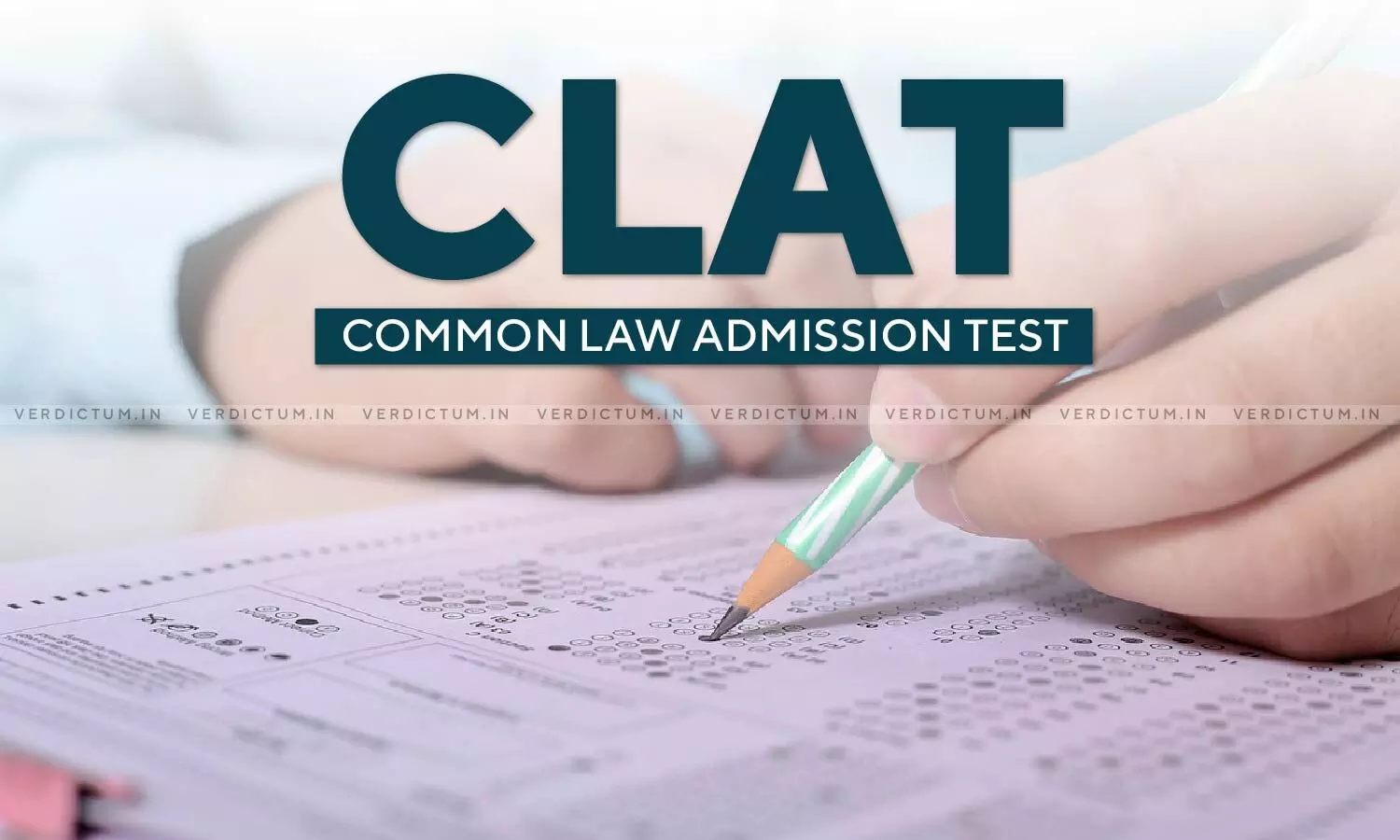
CLAT Consortium A Non-Statutory Body: BCI Seeks Statutory Oversight For CLAT, Offers To Organize CLAT Exam
 |
|The Bar Council of India has recently submitted an affidavit to the Delhi High Court asserting that the CLAT Consortium, which is responsible for conducting the Common Law Admission Test (CLAT), lacks statutory recognition. Additionally, it submits that the BCI being the sole statutory authority in the field of legal education, has not been granted any role or supervision over the said admission test. The BCI has also expressed its willingness to organize the CLAT Exam.
The BCI's response has been filed in the context of a Public Interest Litigation before the Delhi High Court seeking directions on the Consortium to conduct the CLAT (UG)-2024 (Common Law Admission Test), scheduled for December 2023, not only in English but also in all other regional languages listed in the Eighth Schedule of the Constitution of India.
Highlighting that admissions to the National Law Universities (NLUs) are being made on the basis of an admission test, which is being conducted by a non-statutory body, the BCI seeks the responsibility of conducting the exams in all scheduled languages. The affidavit states, "That the Bar Council of India proposes that it may be permitted to constitute the body of experts through its Legal Education Committee, to hold CLAT wherein the Legal Education Committee council involve some sitting and former Hon'ble Judges, noted educationists of legal education and eminent jurists."
Recently, in an earlier affidavit filed the BCI had supported the issue raised by Petitioner for conducting the CLAT examination in languages other than English. BCI had submitted that this will give opportunities to more citizens of the country to appear in the exam and pursue law as a career. BCI also highlighted that the All India Bar Examination was declared to be conducted in 23 languages.
On the other hand, the CLAT Consortium had informed the High Court that at present it has decided against conducting CLAT 2024 in multiple languages due to the challenges and complexities they have identified. It was also submitted that CLAT Consortium simply does not have the capacity and wherewithal currently to immediately implement any additional language options, without compromising the quality and integrity of the competitive examination.
In response to the same, the BCI has filed the current affidavit, stating that it possesses the experience of successfully conducting a similar examination, namely the AIBE, in a fair and transparent manner. The BCI has established mechanisms to conduct entrance/admission tests for law courses in various languages for all institutions providing legal education in the country. This approach would provide opportunities for more citizens across the country to participate in the examination and pursue a career in law.
The BCI also clarified that the Vice Chancellor of the National Law School of India University, Bangalore, inaccurately asserted that the AIBE was conducted in only 11 languages while in fact, the BCI offered to conduct it in 23 languages but the candidates only chose to give the exam in 11 languages.
It has also been submitted that BCI is prima facie of the view that no deserving candidate should be deprived of giving the CLAT on account of his/her inability to be proficient in English. BCI while seeking the responsibility of conducting the CLAT Examination also submits that under Section 7 and Section 49 of the Advocates Act, 1961, they have been conferred with the sole responsibility of regulating Standards of Legal Education and framing the Rules in this regard and also the power to inspect and recognize universities imparting Legal Education.
Similar to the stand taken by the BCI, the Central Ministry of Education has also informed the High Court that it has no objection if the entrance examination for CLAT-2024 (UG) is conducted in English and other regional languages.
In the PIL filed by Sudhanshu Pathak, through the Advocates Akash Vajpai and Sakshi Raghav, it has been submitted that the present CLAT (UG) demands a high degree of proficiency in English rendering a disadvantage to students from non-English medium backgrounds. It is submitted in the petition that as per a 2013-14 year survey, 96.77% of the surveyed students came from English medium backgrounds which indicates that proficiency in the English language continues to be a major factor for gaining admission to a top NLU in the country and that CLAT (UG) discriminates against and fails to provide a level playing field to the students belonging to educational backgrounds rooted in regional languages.
The Court will now consider the matter on October 6, 2023.
Cause Title: Sudhanshu Pathak v. Consortium of National Law Universities & Ors [W.P.(C) 3132/2023]